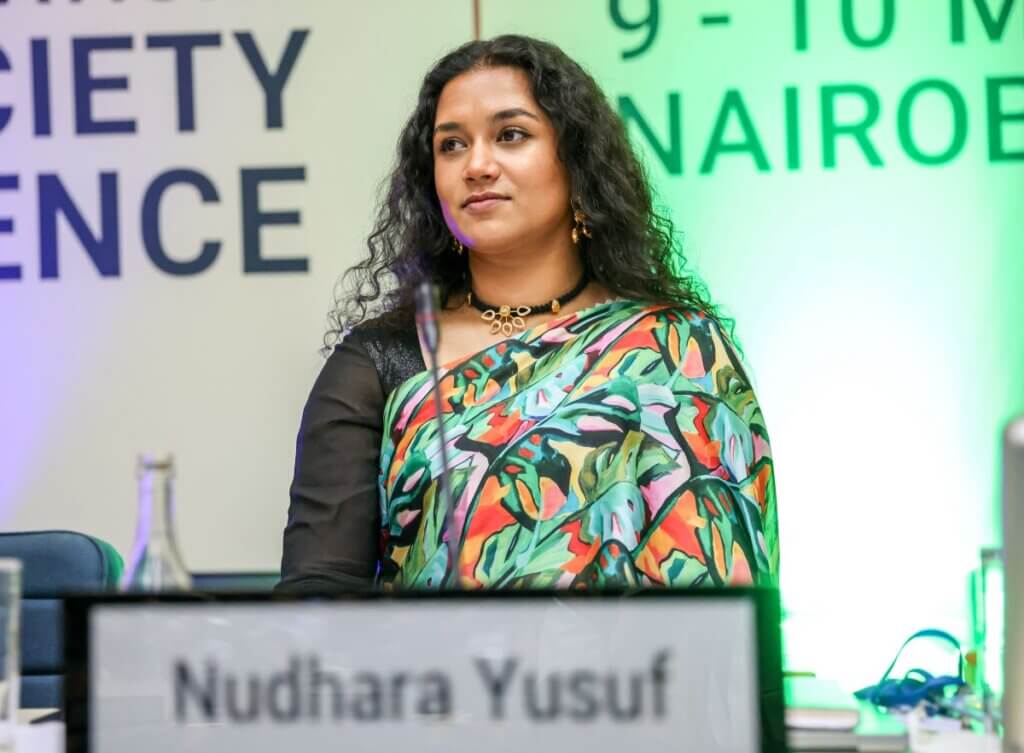
By Baboloki Semele: As the 79th session of the United Nations General Assembly (UNGA79) kicks off, a major focus is on the upcoming Summit of the Future. Nudhara Yusuf, a well-known international relations expert, offers insights into the event’s significance and its role in shaping the future of global governance. The 79th session of the UN General Assembly, which runs from September 2024 to September 2025, covers various priorities. These include promoting sustained economic growth, maintaining international peace, advancing Africa’s development, upholding human rights, and coordinating humanitarian assistance. The agenda also emphasizes justice, disarmament, crime prevention, and addressing global terrorism. However, what truly stands out during this session is the UNGA High-Level Week in late September. This year’s focus will be largely influenced by the Summit of the Future (September 20-23), which is expected to address modern-day global challenges and foster international cooperation The Summit of the Future was first proposed in the 2021 Our Common Agenda report. According to Yusuf, this summit is a critical moment in history, bringing together global leaders to rethink how to tackle 21st-century challenges using outdated 20th-century systems. The goal is to ensure that global governance transitions from “breakdown” to “breakthrough.” Yusuf sees the Summit as an opportunity for leaders to restore trust in international organizations, emphasizing the importance of cooperation at a time when global tensions and geopolitical conflicts question the effectiveness of multilateralism. The Pact for the Future, the summit’s key outcome document, is co-facilitated by Germany and Namibia. It covers five major areas: sustainable development, peace and security, digital cooperation, youth and future generations, and transforming global governance. Alongside the Pact, two additional documents—the Declaration on Future Generations and the Global Digital Compact—are being drafted to guide actions related to protecting future generations and regulating the digital space. These agreements are still under negotiation but are expected to set the tone for future global cooperation. Yusuf highlights that the Summit of the Future will reaffirm foundational elements like international law and human rights while also addressing emerging global challenges. Notably, middle-power states and Global South countries are stepping up to push for financial reform, reflecting a shift in global leadership. The summit’s timing coincides with elections in 64 countries, making 2024 a politically significant year. Yusuf believes this moment is crucial for shaping new global leadership perspectives on international cooperation. According to Yusuf, the road to the Summit has been a collective effort involving the UN Secretariat, Member States, and civil society. Milestones include the 2021 Our Common Agenda report, the 2023 SDG Summit, and ongoing negotiations that have intensified in 2024. Looking ahead, the Pact for the Future will be reviewed at UNGA83 in 2028, ensuring that it remains relevant and actionable. One major challenge, according to Yusuf, is the potential lack of high-level participation. Last year, only one of the five permanent members (P5) attended UNGA. If heads of state do not prioritize the summit, the UN’s credibility could be at risk. Another significant concern is the underrepresentation of women. In 2023, only 12% of speakers during the general debate were women. Yusuf expects this issue to come under scrutiny once again. Yusuf points out that many people, including experts, underestimate the Summit’s potential impact. It is not just another international meeting; its outcomes will influence a wide range of global issues from arms trade to digital governance. This summit is set to shape the future of multilateralism in a profound way, and its significance should not be overlooked. As the world watches closely, the Summit of the Future has the potential to redefine global cooperation and governance for decades to come. For those involved in shaping the 21st century, this is a pivotal moment.